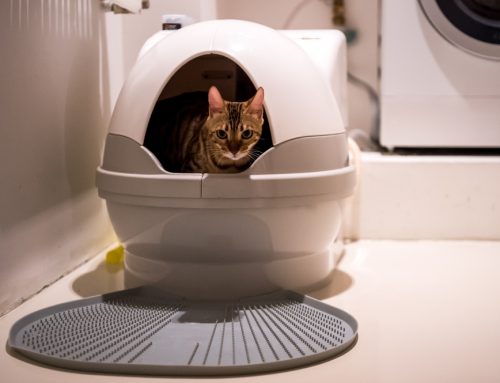If your pet is coughing, you are likely concerned about their health. Coughing can result from several health issues, ranging from mild allergies to a severe medical condition. Our West Vets Emergency Veterinary Clinic team explains coughing causes, treatment options, and preventive measures to help maintain your furry friend’s health and well-being.
Coughing causes in pets
Coughing can make your pet uncomfortable and can lead to secondary problems. While a cough can develop for myriad reasons, the most common are as follows:
- Respiratory infections — Coughing, sneezing, and other respiratory conditions can indicate an infection. Kennel cough—canine infectious tracheobronchitis—is a highly contagious condition in dogs, often contracted in kennels, dog parks, or grooming facilities. Signs include a dry, hacking cough, sneezing, and a runny nose. Another example is feline upper respiratory infection in cats, most often contracted in shelters or multi-cat households. Signs include coughing, sneezing, nasal discharge, and fever.
- Allergies — If your pet has allergies, they may cough, sneeze, itch, and have eye discharge. Pets can be allergic to pollen, dust, mold, cigarette smoke, and other environmental factors or sometimes ingredients in their food.
- Heart conditions — Many pets who develop heart conditions, such as congestive heart failure, will have various physical signs, including coughing. Heart diseases are more common in senior pets, resulting in coughing, difficulty breathing, fatigue, and a swollen abdomen.
- Parasites — Parasitic infections affecting the heart, including lungworms and heartworms, can cause coughing, difficulty breathing, and lethargy.
- Foreign objects — Pets may accidentally inhale small objects, causing irritation and coughing. Larger objects or food can become lodged in the throat, leading to coughing, choking, gagging or hacking, and distress.
- Chronic conditions — Chronic bronchitis—long-term airway inflammation—can lead to persistent coughing and difficulty breathing. Asthma is common in cats and is characterized by inflammation and airway constriction, which results in coughing, wheezing, and labored breathing.
- Infectious diseases — Some contagious illnesses cause respiratory problems in pets. Pneumonia—lung inflammation—caused by bacterial, viral, or fungal infections, causes coughing, fever, lethargy, and difficulty breathing. Canine influenza, or dog flu, is highly contagious and spreads through unvaccinated dogs. Signs include coughing, sneezing, fever, and nasal discharge.
Diagnosis and treatment for coughing pets
Coughing in pets can have various causes, ranging from a minor irritation to a serious underlying condition. A thorough exam by our West Vets Emergency Veterinary Clinic veterinarian can reveal clues to the cough type, such as dry, moist, or honking, other signs, such as nasal discharge or fever, and overall health status. Depending on the suspected cause of your pet’s cough, our team may recommend:
- X-rays — X-rays can show lung or heart abnormalities.
- Blood tests — Laboratory testing assesses your pet’s overall health and screens for infections.
- Fecal tests — These tests rule out parasites that could affect the respiratory system.
- Heartworm tests — Heartworm testing may be ordered by our veterinarian when coughing is persistent, particularly in dogs.
Treatment depends on the exact cause of your furry friend’s cough. Medications, such as antibiotics, antihistamines, and cough suppressants, may be prescribed for contagious illnesses, allergies, and infections. However, treatment protocols will vary if your pet is diagnosed with a pre-existing medical condition such as heart disease.
How to help prevent your pet from developing a cough

Because coughing is usually a disease sign, our veterinarian must first determine what’s triggering your furry pal’s cough. However, the following suggestion can keep your furry friend from developing health issues that underpin respiratory problems:
- Vaccinations — Ensure your pet is up-to-date with vaccinations, especially for kennel cough, canine influenza, and other preventable diseases.
- Regular veterinary exams — Scheduling annual or biannual wellness exams helps detect and address potential health issues before they become serious.
- Parasite prevention — Administer the preventive medications our team prescribes to protect your pet from heartworms, lungworms, and other parasites.
- Environmental control — Minimize your pet’s exposure to environmental allergens and irritants. Avoid smoking around your pet and use pet-safe cleaning products.
- Healthy lifestyle — Provide your furry pal with a balanced diet and regular exercise to support their overall health and immune function.
Coughing in pets can be caused by various factors, from infections and allergies to heart conditions and foreign object ingestion. Our West Vets Emergency Veterinary Clinic team can promptly diagnose and treat the underlying cause effectively. If your four-legged friend is coughing, contact us for an exam, so we can get to the source of their discomfort.







Leave A Comment